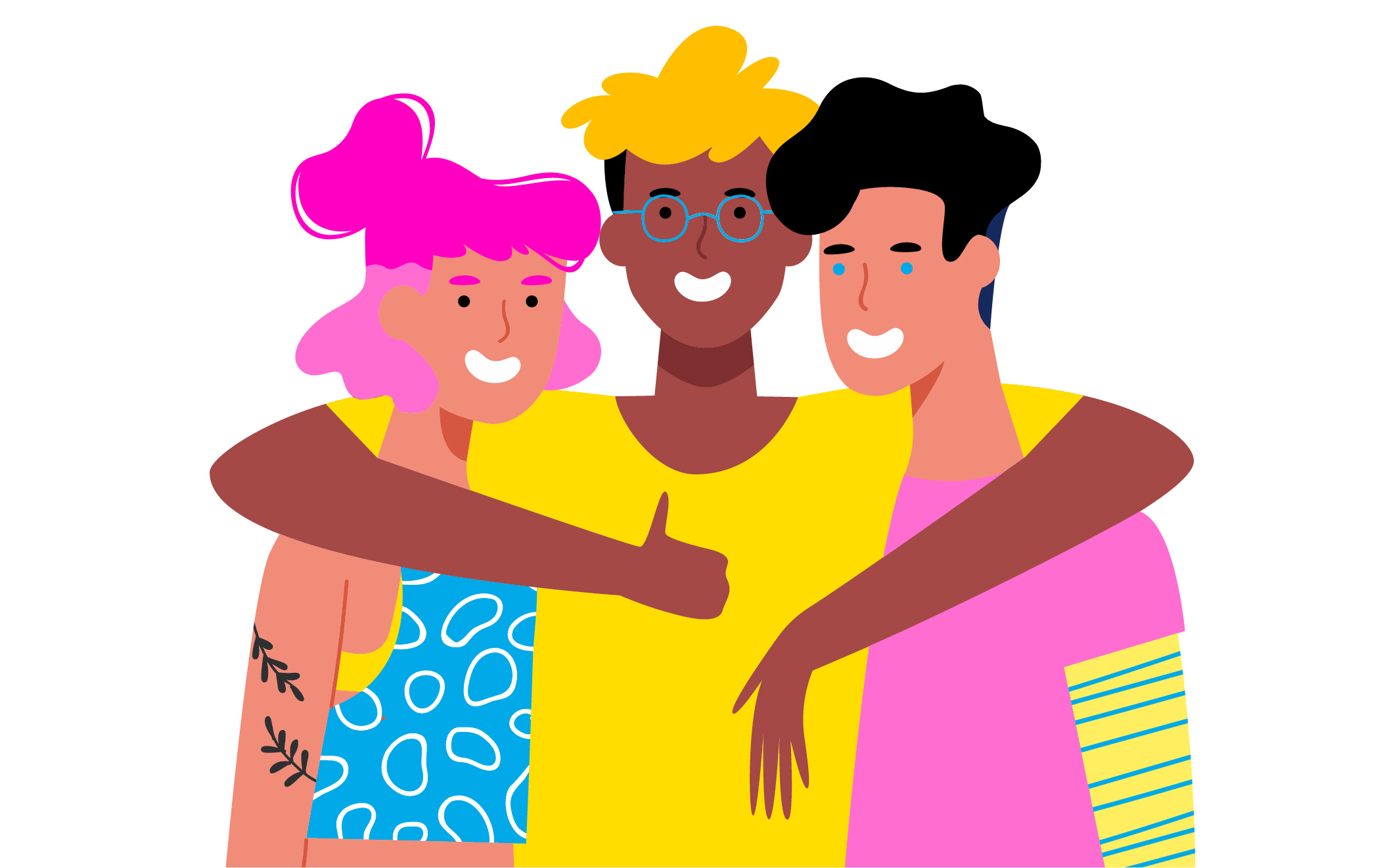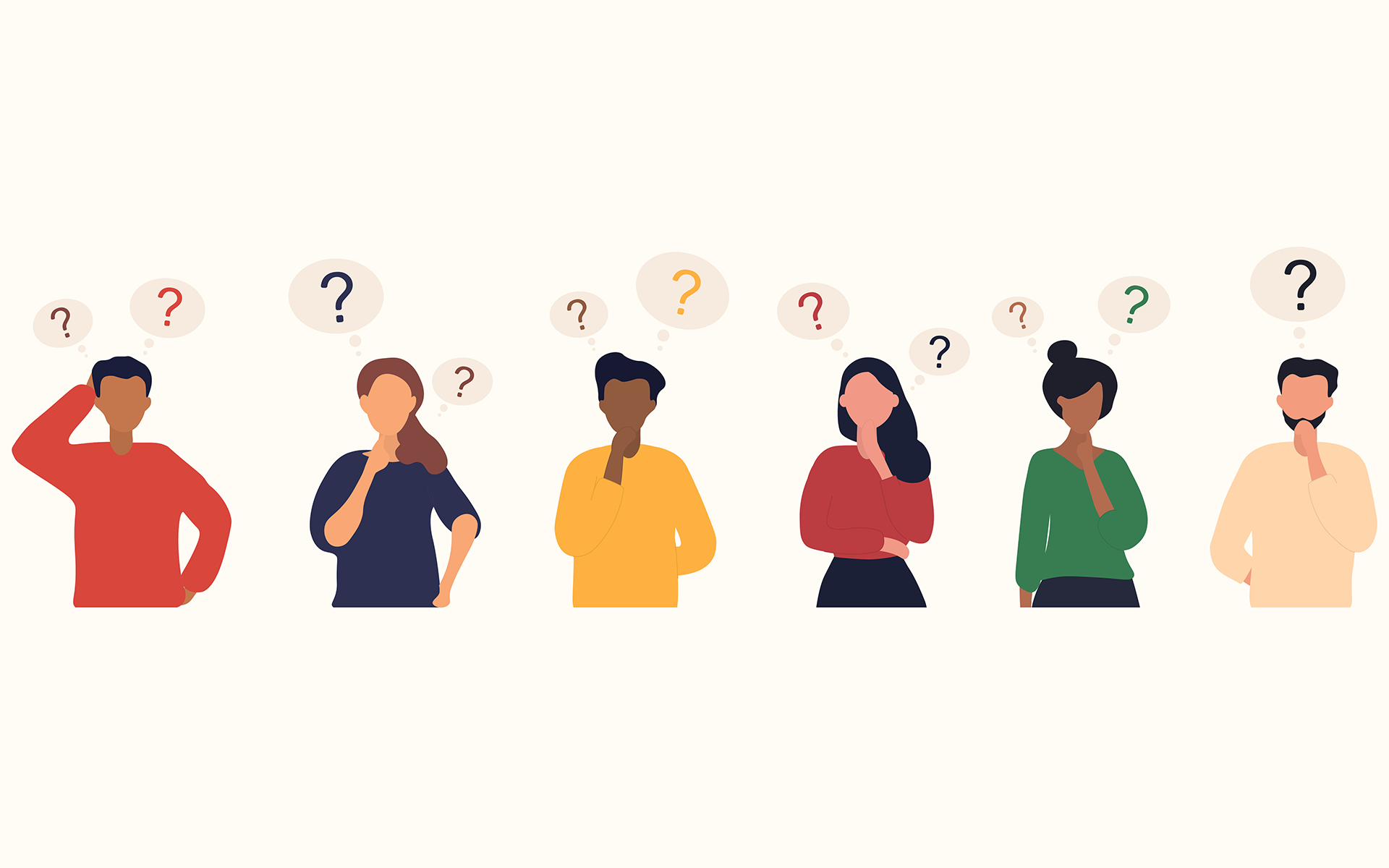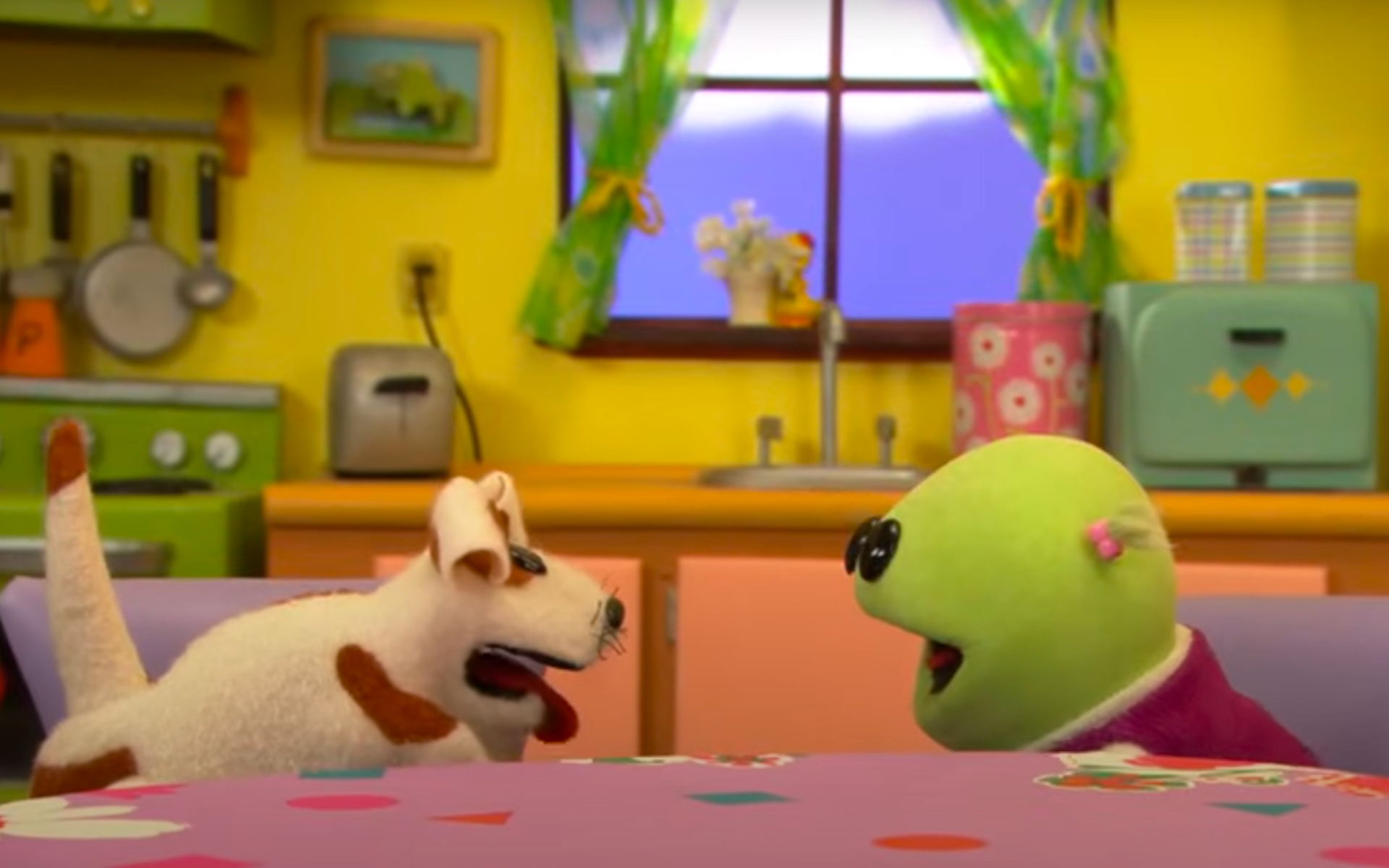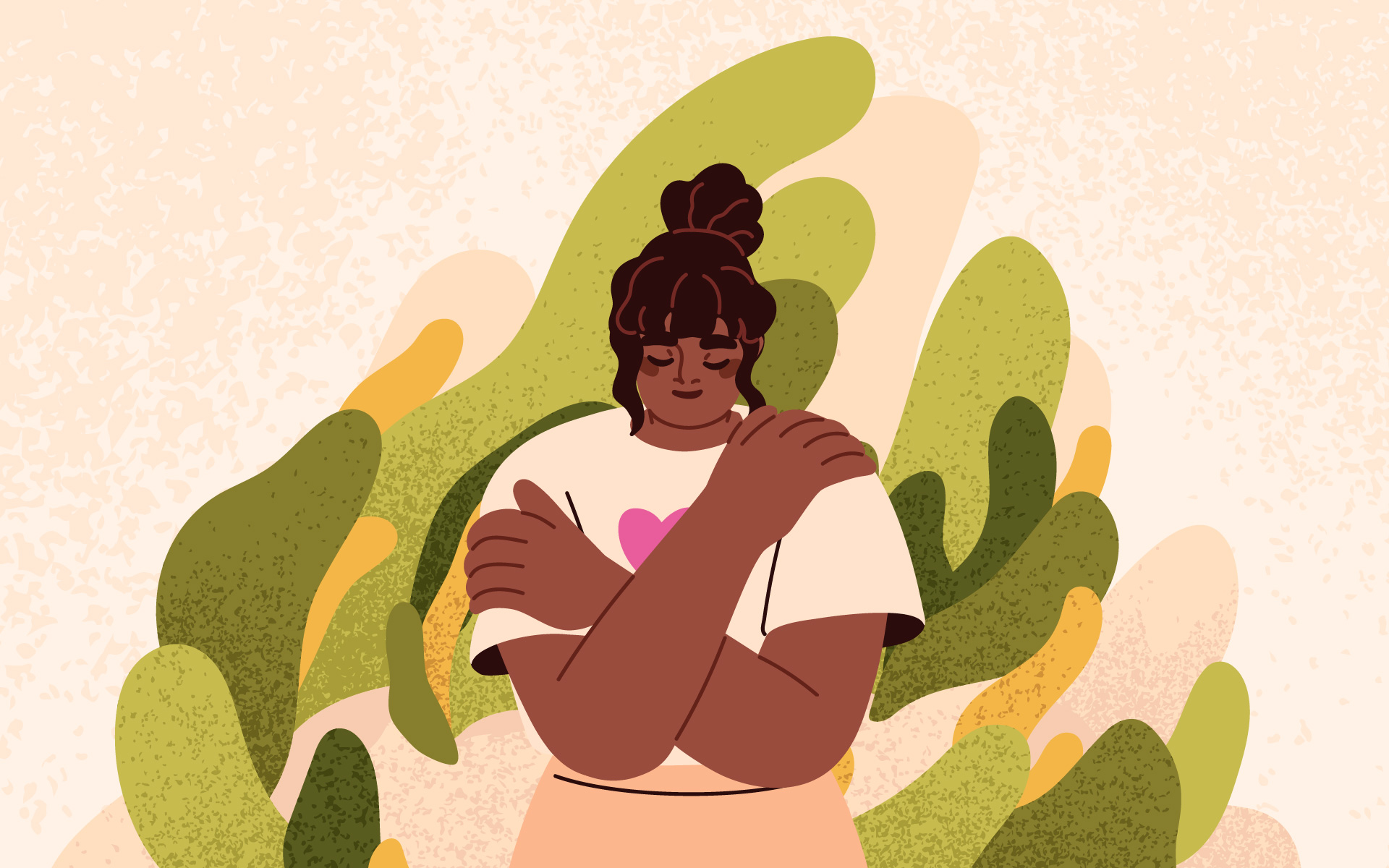Real Mindful: Embracing the Gift of Being Alive with Rhonda Magee
Stephanie Domet: Hello, and welcome to Real Mindful. This is where we speak mindfully about things that matter.
We’ll meet here twice a month to introduce you to some of the teachers, thinkers, writers, and researchers who are engaged in the mindfulness movement. You’ll hear all kinds of conversations here about the science of mindfulness, the practice of mindfulness—and the heart of it.
I’m Stephanie Domet. I’m the managing editor at mindful magazine and mindful.org. And this is Real Mindful.
Rhonda V. Magee is a professor of law at the University of San Francisco. Also trained in sociology and Mindfulness-Based Stress Reduction (MBSR), she is a highly practiced facilitator of trauma-sensitive, restorative MBSR interventions for lawyers and law students, and for minimizing the effects of social-identity-based bias. Magee has been a visiting scholar at the Center for the Study of Law and Society and a visiting professor of law at the University of California, Berkeley.
Her book, The Inner Work of Racial Justice has just been released in paperback by Penguin Random House. The Inner Work of Racial Justice is a “rewarding, vital, and timely journey” into using contemplative practices to peer into and beyond our biases.
The book was first released in the fall of 2019. Soon after, we ran an excerpt from The Inner Work of Racial Justice, in which Rhonda writes about working through a difficult conversation with a student. Here’s a bit of that excerpt:
Talking about race isn’t easy for anyone—and teaching about race can be a minefield. One of my own most difficult moments teaching about race happened when I encountered intentionally provocative behavior from one of my students, Dan, an Asian-American cis-gendered man.
Dan was in his last semester of law school, and this was his third course with me—it was a course on contemporary issues of race and law.
A major component of the course was a research paper and the students each took turns discussing their thoughts on their projects. When we came to Dan, he said, “I want to do a paper on the Rodney King beating.” His likely “thesis,” he announced, was that the beating King received at the hands of police “was deserved.”
Even as I write this now, I can feel a blip of reactivity. I can see the policemen in that grainy video that we’ve all seen, appearing to let loose with as much force as they could muster on Mr. King, raining strikes with their batons on the head and torso of a man already on the ground beneath them. And I can feel the empathetic pain, sadness, and anger coming up for me as a result.
So, when Dan made this announcement to our small seminar-style class sitting around an oblong table, I could sense the tense silence that fell across the whole room. And I could feel my mouth go dry with fear and a bit of intimidation.
I felt my temperature involuntarily rise, the blood seemingly rushing to my head. “This is what anger feels like,” I knew enough to admit to myself silently. And I certainly felt viscerally and immediately the sense of energy of judgmental thoughts arising in my own mind (“You are wrong!”) and indignation (“How dare you?”). This was what confusion, anger, and dismay all mixed up together felt like. And it was what deep concern and compassion for my other students felt like—several of them were black and brown, and had felt the direct impact of nationwide patterns of over policing of black men. Finally, on top of all of this, my own ego was on the line—I’d been tasked with facilitating this conversation and guiding it productively, and this moment certainly wasn’t feeling like success.
So, you can read the rest of that excerpt at mindful.org. Rhonda details how she worked through a series of conversations with Dan, uncovering what was motivating him, and helping him work through some of his own trauma and arrive at some healing. It’s a really powerful excerpt—but it left me with a lot of questions, as a reader. So I connected with Rhonda Magee in late 2019, to ask her some of those questions. Here’s our conversation.
SD: In your book The Inner Work of Racial Justice, you detail the steps you took to help one of your students process his attitudes and biases. What kind of energy does that work require?
Rhonda Magee: It requires a certain kind of commitment, a certain willingness to turn toward that which we could so easily deflect, turn away from, deny, minimize, avoid. For me it’s really important that when these opportunities present themselves for us to look into what’s arising around this, we turn in to that opportunity as opposed to away from it. I also think it takes a kind of grounding in a certain kind of love—kindness, loving-kindness— for me it takes some feeling of the value, of the possibility of connecting across lots of difference and the importance and value of trying to do it, again and again, even when it’s difficult.
SD: Why is it worth it to you to do this work?
RM: In my view, absolutely everything is connected, and that means all of us are connected, and so it seems to me that when we have these opportunities to expand the sense of our common ground, and we don’t take advantage of them and we don’t do what we can to heal and repair and transform the world, then it seems to me we are in effect contributing to barriers and obstacles to deep well-being. And so for me it’s worth it because it’s about practice. It arises out of deep practice for me—it arises out of the deep ethical ground of my practice.
SD: Who does that work serve? Is it for yourself, for the other person, the greater good of society? To honor the practice?
RM: It serves life. The gift of literally being alive. To me that’s not about any one of us, actually. To be alive is a great gift, and therefore the only real response to such a gift is gratitude. And a way to show gratitude is to try to minimize harm wherever it arises, as best we can. Recognizing we’re not perfect, that we’re not always able to see clearly how what we’re doing contributes to harm, we’re all vulnerable and misguided in our own ways, so it’s with a lot of humility that I say this. But ultimately, I think this question of who does it benefit, it benefits life.
SD: For a racialized person, a racialized woman, there are microaggressions everywhere. How do you take care of yourself to ensure you can do this work you want to do and feel called to do?
RM: It has come out of a sense of my own agency and what I often call personal justice. This idea that justice starts with us, how we treat ourselves. Taking care of myself feels like the first approximation of whatever it is I’m trying to offer in the world. There’s a reason I live in San Francisco as opposed to North Carolina or Virginia, where I was born and raised. The environment in San Francisco seems a bit more conducive to this way of accepting people, working across cultures, multiculturally, working with people who have different ways of expressing themselves, whether it be about race, sexual orientation, religion, immigration status. I specifically talk about the environment first and then the practices. We tend to think that from the practices we can overcome just about everything and that’s a good way to think, but I don’t want to miss this opportunity to name the relevance of our embeddedness in the world, and what’s possible is, in some measure, aided and abetted and shaped by the circumstances, the environments, the structures and systems that we find ourselves bathing in all the time. I live in a community that provides a certain amount of buffer against some of the worst kinds of disrespect that a person like me might find out in the world. From this place of relative protectedness, then I actually am able to give even more. We have to keep fighting for opportunities for people who today are suffering from a new set of oppressive systems.
SD: I wonder about your take on callout culture, or cancel culture. Is there a value in that approach, too? Your approach is one on one, which feels righteous, but slow. But what about other big-impact approaches? Do they also move the ball down the field?
RM: In the social justice arenas we may have overamplified some of the sharper ways of dealing with this. That’s not to say there aren’t times when we really need to take a strong, sharp stand. It takes a certain skill to act firmly and clearly and do so in a way that can minimize rather than exacerbate patterns of disconnect and separation. For me it’s never about just changing places with the people or processes that have been causing harm. It’s really about bringing around a new way of being with each other. There’s a certain urgency to figuring out how to work for some notion of justice and how to end oppression, but how to do that in a way that opens the heart, and that expands the capacity of all of us to be agents of a kind of public love that can help us sustain human life. Because the universe is going to go on in whatever way, but human life is vulnerable right now because of our failure to figure out how to live more gently and effectively together on this planet and to appreciate this brief opportunity we have between the birth and the death date to make a positive impact on this world.
“There is a way that even in the darkest times—intergenerationally dark times where there’s no reason to think your children will ever get out of this—there’s a way to love.”
SD: Do you ever lose your cool?
RM: I often lose my cool intentionally, as a tool for my own healing. If I’m feeling agitation and despair or some sudden rage at something I hear that seems completely nuts, my own practice journey at the moment is allowing those feelings to be expressed and as much as possible doing that regularly enough that they’re not creating a boiler that is going to explode out there. So if I’m here, at home, where it’s safe, it’s part of my practice to let the anger and the rage that I feel about injustice come right out. There are so many things happening that if you are willing to look at these difficult issues—I mean, my heart is breaking all day every day. I hum, I sing more nowadays, I hum and sing with others more nowadays. Singing, holding hands, humming, those are ways that human beings have across times and cultures managed to get through difficult times together. I sometimes forget just how many generations of human beings before recorded human history—for hundreds of thousands of years we don’t know the numbers of battles, rages, the despair, the inhumanity to each other, and yet we survived, and yet we didn’t burn down the planet, and yet we figured out how to keep getting up every day and feeding the children. There’s a planet’s worth of wisdom about how to get through difficult times and about the holistic nature of what that takes, so that’s what I’m about these days.
SD: I thought losing your cool would look more like—I don’t know—do you ever want to swipe all those books off the bookcase behind you?
RM: I mean, sometimes! When I hear this I’m tempted to think of those who say: We just need to start all over again. Blow it up and start all over. I don’t have kids, I’m not physically a mother, but I kind of feel like most moms and most of us in these communities that have suffered a lot over time, you know, we’re here. We’re usually not the ones who say let’s burn it all down. Because our children are in that. The things we have lovingly protected from the worst, as best we could through generations, whether through slavery or whatever our cultures and heritages have suffered through, we suffered through so we could live another day and find the sources of hope and regeneration. That mothering instinct, I believe it’s in all of us on some level, that instinct that would protect, that would go into the fire and pull out what we can and start again, mindfulness of that, cultivation of that is what I feel called to help support and that comes at least in part from my own particular lineage as the granddaughter of the granddaughter of formerly enslaved people. There is a way that even in the darkest times, intergenerationally dark times where there’s no reason to think your children will ever get out of this, there’s a way to love, to help bring about places where joy and healing can happen, and my goodness, if people could do it during much darker times, the holocausts of our history, the enslavement periods of our history—if it could be done then, then we can do it now. I have some love and compassion for those who feel so beleaguered that the call is just to burn it down. And I say, before you light that match, look into the eyes of a child, hold the hand of a friend, realize that these very human gestures matter, and look for that will, that capacity to live another day in love.
SD: When I look at what’s happening in the world today, the level of unrest and aggression, hate and burning, I see a lot of “men in the room.” What do you think about the role of women in helping bring about this “new way of being with each other”?
RM: I sometimes think of this in the conventional terms of identity—it seems obvious that we need more women in power! But I also think that more fundamentally and importantly, we need to see more empowered feminine energy in the world: that energy which lives in all of us—to greater or lesser degrees—the energy that nurtures, that cares, that sees the imprint of the future and the past in everyone and in everything we do. Any one of us can do this. And every one of us should.
Show Notes
Read an excerpt from Rhonda Magee’s book here: How Mindfulness Can Give Us the Courage to Examine Bias
Original excerpt conversation is based on: Rhonda Magee on Her Inner Work of Racial Justice
Find more from Rhonda Magee
Rhonda Magee, Author at Mindful
Find Rhonda Magee’s book, The Inner Work of Racial Justice: Healing Ourselves and Transforming Our Communities here: The Inner Work of Racial Justice
And find more from Mindful on our practice podcast, 12 Minute Meditation.
Let us know what you thought by emailing [email protected].
read more
How Mindfulness Can Give Us the Courage to Examine Bias
Mindfulness can help us tap into the courage and compassion necessary to recognize our own prejudices and sit with them long enough to find a thoughtful way forward.
Read More
Rhonda Magee on Her Inner Work of Racial Justice
Law professor Rhonda Magee applies her deep meditation practice to the difficult waters of racially-charged interactions.
Read More









